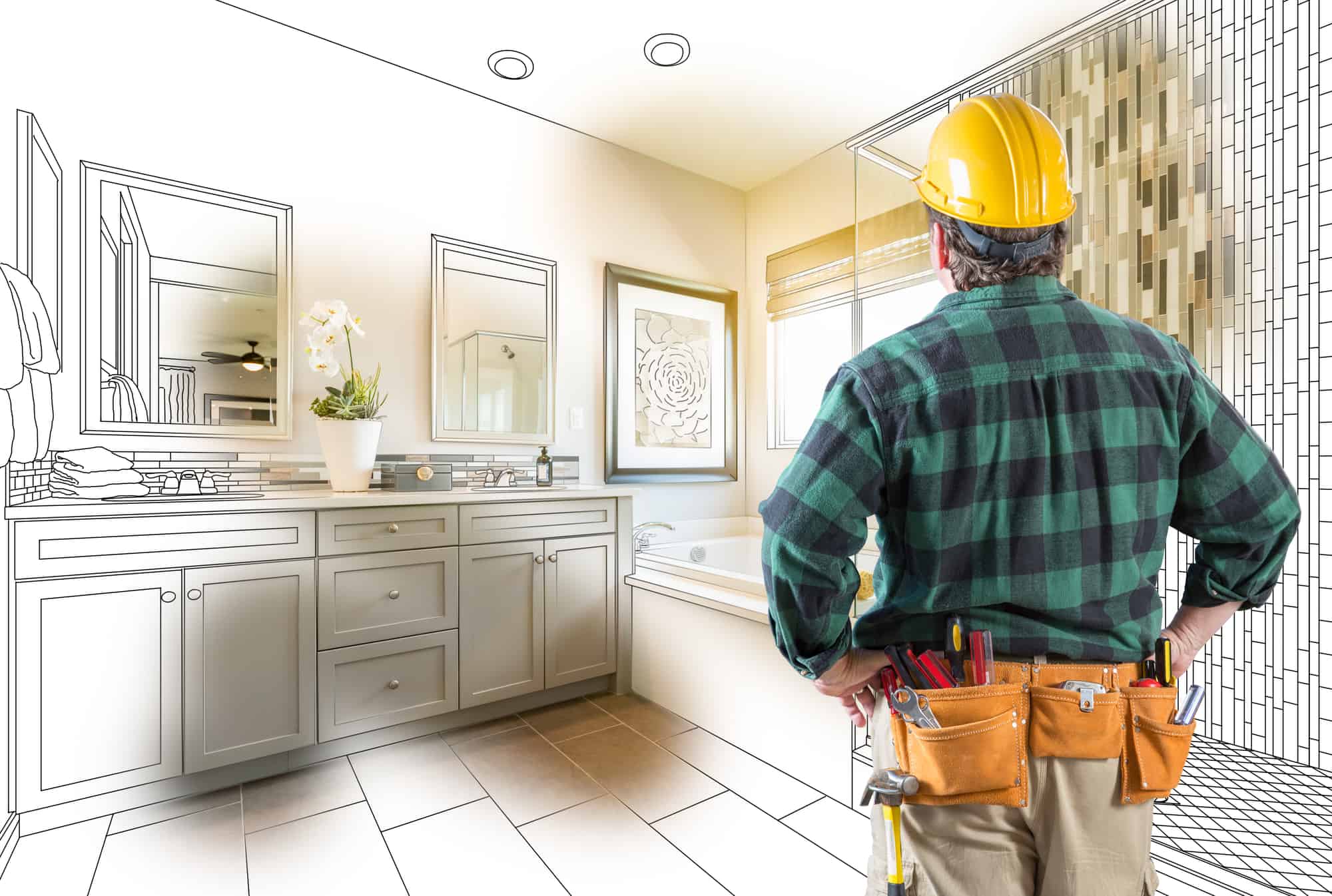Most families at some point reach a difficult real estate crossroads: Do they renovate an existing home to fit their current needs, or do they go out and buy another house that’s already the way they like it?
This is a question with no one-size-fits-all answer, although most families can make the decision with a bit less drama than is normal in a popular TV series that profiles families debating whether to make over or sell their homes. Should you renovate or buy a new home? Let’s discuss below!

Photo: Deposit Photos
Renovate or buy new house
It might seem like an easy choice, but for many, it’s not. Let’s talk about that various reasons why someone would renovate vs buying, or vice-versa.
Location, location, location — and budget
The most important issue is location. Is staying in your current neighborhood important to you, and, if so, does the kind of home you want exist in that neighborhood? If not, can you legally create that ideal home on your budget?
The second major question is budget: Is it more economical to renovate your current house or buy another one? The answer to this question will depend upon your home, your budget and your needs.
In cities where homes are less expensive, it is often cheaper to buy than to build. In cities and neighborhoods that are in high demand, it may be cheaper to build an addition or renovate outdated spaces.
Fred Wilson, an architect with Morgante-Wilson Architects in Evanston, Illinois, also advocates starting with a wish list. With your list in hand, your next step should be to consult with an architect to get a rough idea of whether your current house can become what you want, and at what cost.
“Is the house a good house? Are the bones good bones? Is it worth investing in the house?” are all questions an architect can help you answer, he says. “If it’s a very extensive renovation, the house should be in a great location that you can’t duplicate.”
His firm often draws up a quick sketch of proposed renovations, then gathers ballpark estimates from contractors to help the homeowners decide whether remodeling is the best route.
In some cases, homeowners end up asking him to look at potential new homes to see if they can be customized for the family’s needs, but then they decide that renovating another house is a better option.
Start with these questions

Photo credit: Deposit photos
Here are 10 questions to ask yourself when deciding whether to renovate your existing house or find a new home.
Can you renovate within the current footprint? Renovating within the home’s existing footprint generally costs 50 percent less, says Cannon Christian, president of Renovation Realty in San Diego, which handles renovations for homeowners who are selling their homes.
Be careful about garage conversions because they are considered an improvement in some neighborhoods but a detriment in others, he warns. And, there are times an addition is cheaper than modifying existing space, Wilson says, since existing space contains old problems that need to be corrected.
Do you want to live through a renovation? Renovations cause dust, noise and disruption for weeks or even months, and they always take longer than the initial contractor’s estimate. If you’re redoing your kitchen, for example, you may be without a sink or stove for several months.
Can you legally do the renovations you want? Every municipality has building rules, including ones regulating how much of the lot you can cover, whether you can add a second story and how close structures can be to the property line. Permits are required for major renovations, and renovations also can trigger a requirement that existing elements, like outdated electrical panels, be brought up to current building standards.
Does the renovation make sense for your home’s value? Putting a $100,000 kitchen into a $150,000 home never makes sense, but updating a 1970s kitchen with new cabinets and countertops probably does. Never make renovations that are disproportionate to the value of your home.
How does your home compare with others in your neighborhood? If an addition will make your home much larger than others in the neighborhood, it may add less value.
Is your home structurally up to the renovation you want? Not all houses can support a second story, for example. Or, if you want to move walls, you may find the project also will require new support beams or concrete footers. Be wary of doing major renovations in a house with foundation or drainage problems, Wilson advises.
Will renovating one section of your home bring to light other sections that need work? A bathroom renovation, for example, could reveal old plumbing that needs to be replaced. Once a building inspector comes into your home, he may demand you bring other items up to current codes.
How long do you plan to live in the house? If you’re in a two-bedroom house and plan to have three children, consider whether even the expanded house will be a good fit in the long run. “If you’re going to do a big renovation, you want to be there for seven to 10 years,” Christian says.
What will your decision do to your mortgage? If you’re 20 years into a 30-year mortgage, you may not want to start another 30-year mortgage — although you can buy a new home with a 10-year mortgage if you can afford the payments.
Now that you have these tips, it’s up to you to decide is it better to remodel or buy a new house? Some people are looking for cheaper options, while others want ease.
Before tackling a home renovation, or buying a new home, read these tips to help you weigh out the options!
